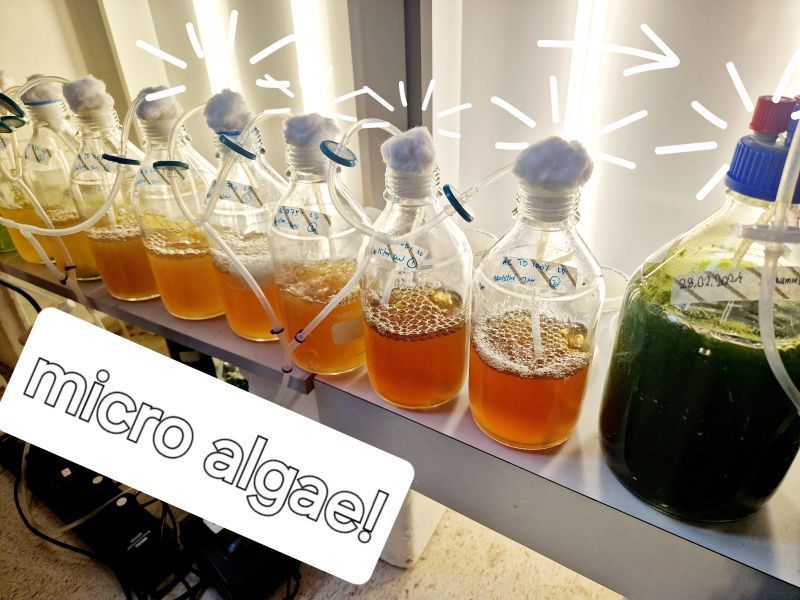Concept
While air traffic continues to grow worldwide, reducing environmental pollution remains an urgent challenge. Algae-based biofuels offer a promising opportunity to reduce the aviation industry’s CO₂ emissions.
Research and development in this area is progressing, with leading research institutes, companies and airlines working together to find sustainable alternatives.
SusAlgaeFuel aims to develop a range of innovative approaches based on waste treatment, digital sensors, cascading biorefinery, and multifunctional catalysts to enable a more sustainable and cost-competitive production of microalgae aviation fuels.

Challenge
Problem: The negative impact of air travel
Air travel has a significant negative impact on the environment, particularly through greenhouse gas emissions. In 2021, CO₂ emissions from aviation in Europe amounted to around 150 million tonnes, which corresponds to around 3.6% of the EU’s total greenhouse gas emissions. These emissions contribute significantly to global warming and influence the climate. In addition to CO₂, aircraft also emit nitrogen oxides (NOₓ) and water vapour, which contribute to the formation of ozone in the upper atmosphere and reinforce the greenhouse effect.
Despite the negative environmental impact, the number of flights is increasing every year. The European aviation industry saw a recovery from the COVID-19 pandemic in 2022, with an increase in passenger numbers of around 35% compared to 2021. Forecasts predict that the number of passengers in Europe will increase by a further 50% by 2030.




Solution: Algae-based fuel: a future prospect for the aviation industry
Algae-based fuel is seen as a potential sustainable replacement for conventional aviation fuel. Algae have the ability to produce large amounts of lipids that can be converted into bio-kerosene. Compared to conventional paraffin, algae fuels could reduce CO₂ emissions by up to 70 %.
Current research and developments in the field of algae biofuel are showing promising results.